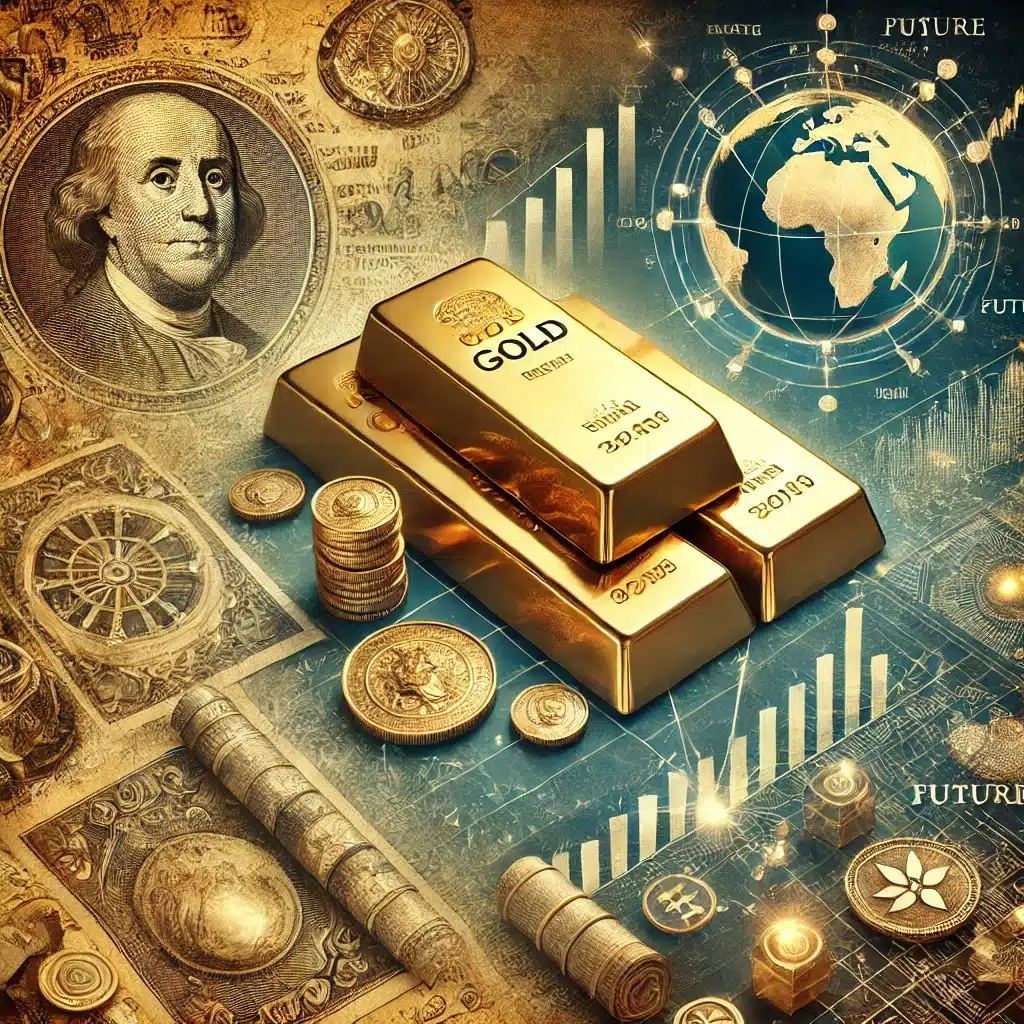Gold has always been more than a shiny metal. It’s a symbol of power, a medium of exchange, and a store of value. From ancient civilizations to modern economies, gold has played a pivotal role in shaping global finance. But how has its role evolved over time, and what does the future hold for gold? Let’s explore the past, present, and future of gold in the global economy.
The Story of Liam and His Gold Discovery
Liam, a history teacher with a knack for storytelling, often shared the tales of gold’s influence on empires and economies with his students. One day, while researching for a lesson, he stumbled upon a question: “Does gold still matter in today’s digital age?” Intrigued, Liam set out to trace gold’s journey through time to understand its role in the global economy. This guide follows Liam’s journey and uncovers fascinating insights along the way.
The Past: Gold as the Foundation of Civilizations
1. Gold in Ancient Economies
- Currency and Trade: Civilizations like Mesopotamia, Egypt, and Rome used gold as a medium of exchange, shaping early commerce.
- Power and Wealth: Gold symbolized wealth and power, often hoarded by rulers and elites to demonstrate dominance.
- Cultural Significance: Beyond economics, gold had religious and cultural value, adorning temples and sacred artifacts.
2. The Gold Standard Era
- Introduction: The gold standard, established in the 19th century, linked currencies directly to gold.
- Global Trade Stability: Countries pegged their currencies to a fixed amount of gold, facilitating stable international trade.
- Collapse: The system began unraveling during the Great Depression and officially ended in 1971 when the US abandoned the gold standard.
The Present: Gold in Modern Economies
1. A Safe Haven Asset
- Economic Uncertainty: Gold is seen as a hedge against inflation and market volatility, often rising in value during crises.
- Central Bank Reserves: Many central banks hold significant gold reserves to diversify and stabilize their portfolios.
2. Gold as an Investment
- Physical Gold: Investors purchase gold bars, coins, or jewelry for long-term wealth preservation.
- ETFs and Mining Stocks: Modern investors use gold-backed ETFs and mining stocks for liquidity and market exposure.
3. Technological and Industrial Use
- Electronics: Gold’s conductivity makes it essential in electronics like smartphones and computers.
- Medical Applications: Gold nanoparticles are used in cancer treatments and diagnostic tools.
The Future: Gold’s Evolving Role
1. Digital Gold and Blockchain
- Tokenization: Blockchain technology is enabling the creation of digital gold tokens, making it easier to buy, sell, and trade gold globally.
- Transparency: Digital systems improve tracking and verification, reducing fraud in the gold market.
2. Sustained Demand from Emerging Markets
- India and China: Growing middle classes in these countries are driving demand for gold jewelry and investments.
- Central Banks: Emerging economies are increasing gold reserves to reduce dependence on the US dollar.
3. Challenges Ahead
- Environmental Concerns: Gold mining’s environmental impact may lead to stricter regulations.
- Competing Assets: Cryptocurrencies and other digital assets are rising as alternative investments.
Why Gold Still Matters in the Global Economy
1. Universal Value
Gold is universally recognized and valued, making it a reliable asset across borders and cultures.
2. Inflation Hedge
In an era of rising inflation, gold remains a trusted way to preserve purchasing power.
3. Crisis Insurance
During geopolitical conflicts, financial crises, and currency devaluations, gold often serves as a financial lifeline.
Liam’s Takeaway: The Timeless Value of Gold
After his deep dive into gold’s history and role, Liam concluded that while the tools for investing in gold have evolved, its importance remains timeless. From ancient kings to modern investors, gold continues to shine as a cornerstone of wealth and stability.
Conclusion: Gold’s Role in the Global Economy
Gold’s journey through history underscores its enduring value in the global economy. Whether as a symbol of power, a hedge against inflation, or a cutting-edge digital asset, gold remains relevant in an ever-changing world.
Are you ready to explore the opportunities gold offers in today’s economy? Share your thoughts and strategies in the comments below. Let’s discuss how gold’s past, present, and future can shape your financial journey!
